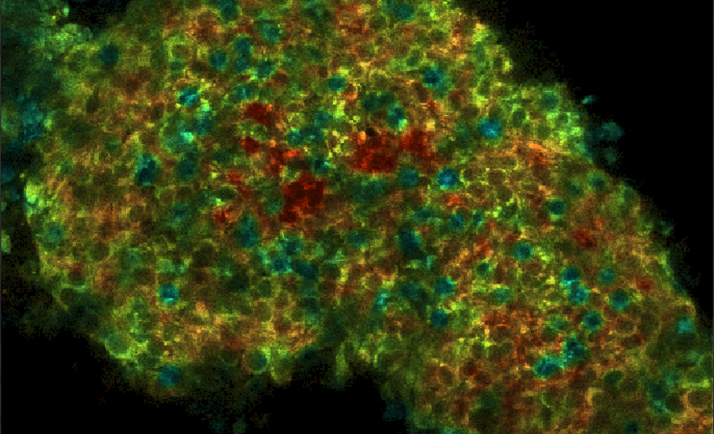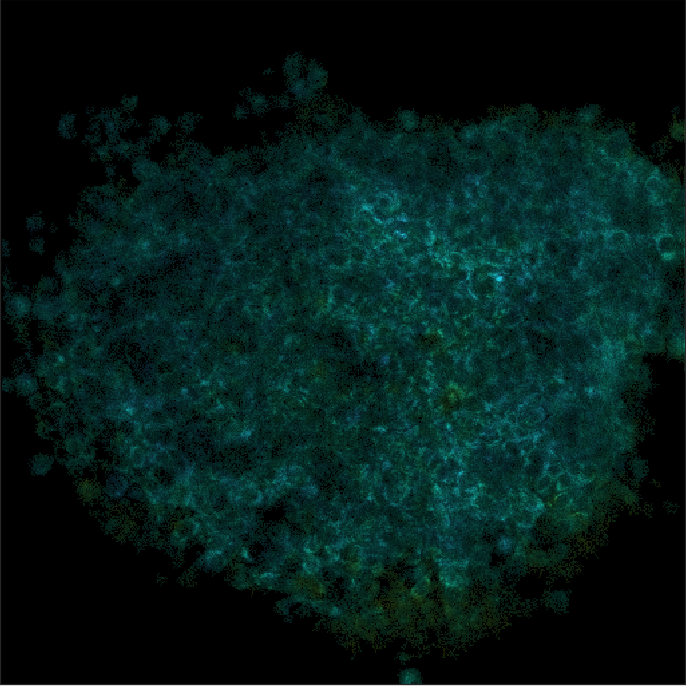Elephas uses live tumor cells for a personalized solution
What if someone diagnosed with cancer could find out very quickly which treatment will stop the disease in its tracks, with little guesswork involved?
That’s the premise behind Elephas Biosciences Corp., a Madison startup that’s rapidly gained investors and a major collaborator.
Elephas takes live patient tumor biopsies, applies potential therapies to the unaltered cells, and then examines them to see if the treatment has triggered immune cell activity. It’s a significant change from common practice.
“The way we diagnose cancer today is the same as it was 100 years ago,” says Maneesh Arora, Elephas founder and CEO. “We take a piece of tissue, embed it in paraffin—which effectively kills the cells—and send it to a pathologist who slices, stains, and studies the cells. The process was invented in 1876.
“We (at Elephas) are convinced that you’re going to get inordinately more information from a live tumor than you are from fixed cells sitting on a slide.” It makes perfect logical sense—but keeping the cells alive is no easy task.
Developing tools and precision imaging
Arora has worked in the cancer diagnostics field for 20 years; he was chief operating officer until 2018 at Exact Sciences Corp., the Madison company whose Cologuard test provides early colon cancer detection.
In 2020, Arora began to explore the scientific research on advanced imaging approaches to assess tumors. University of Wisconsin-Madison biomedical engineering professor Kevin Eliceiri was an early collaborator and adviser. Arora formed Elephas in April 2020 with an infusion of his own money; other early investors received tax credits through WEDC’s Qualified New Business Venture Program.
Arora began gathering engineers, biologists, immunologists, imaging scientists, and software engineers. They found that specific size, timing, temperature, and transportation conditions were critical to keeping the cancer cells alive for testing.
The prepared biopsy tissue needed to be no more than 300 microns—comparable to the thickness of three or four strands of hair. Elephas built an instrument to cut those microscopically thin slices and developed a liquid solution to preserve the cells. The company uses advanced 3D imaging that fires multiple photons of light at the cells to assess metabolic changes that can result from treatment. Specifically, the technology looks to see if T-cells—a subtype of the white blood cells known as lymphocytes—are able to activate and attack cancerous tumors, a type of treatment called immuno-oncology therapy.
Elephas began experiments with animal and human tumor cells. “What we saw was a high correlation between what we said would happen and what actually happened in animal models. We are physically able to see those tumor cells dying,” Arora says. “And we expect the results to be available within 72 hours.”
Ramping up investors, collaboration
In January 2024, Elephas closed a $55 million investment round led by Venture Investors Health Fund and the State of Wisconsin Investment Board, bringing the total raised to $125 million. In February, the company announced a multi-year collaboration with Mayo Clinic.
Together, the two developments will advance the Elephas platform and pay for an observational study to show that Elephas is, indeed, able to predict a cancer patient’s response to a specific treatment—within three days of taking the biopsy. The goal is to test tissue from at least 100 patients, obtained from clinics around the country, in 2024.
“My hope is that within the next three years, this technology will be broadly available to cancer patients,” Arora says.
In the meantime, Elephas also started offering its services to help biopharmaceutical companies speed up their immuno-oncology drug development using Elephas’s platform.
The company has 130 employees, about 106 of them in Madison, and is conducting an observational study with 10 centers around the U.S. for multiple types of cancer.
Arora’s vision for Elephas’s future: “My hope is that we are able to provide so much value to clinicians and patients that they won’t want to live without it.”






